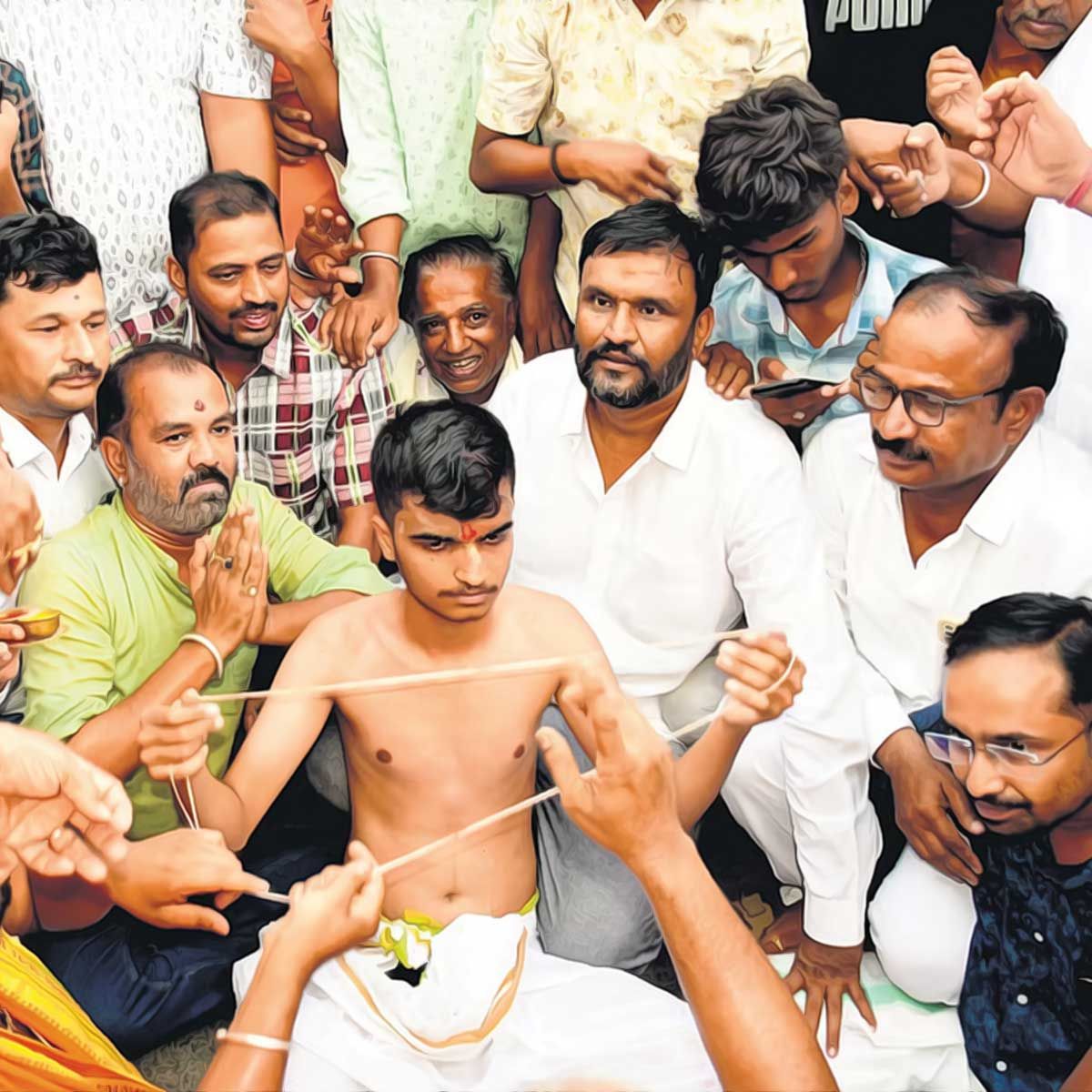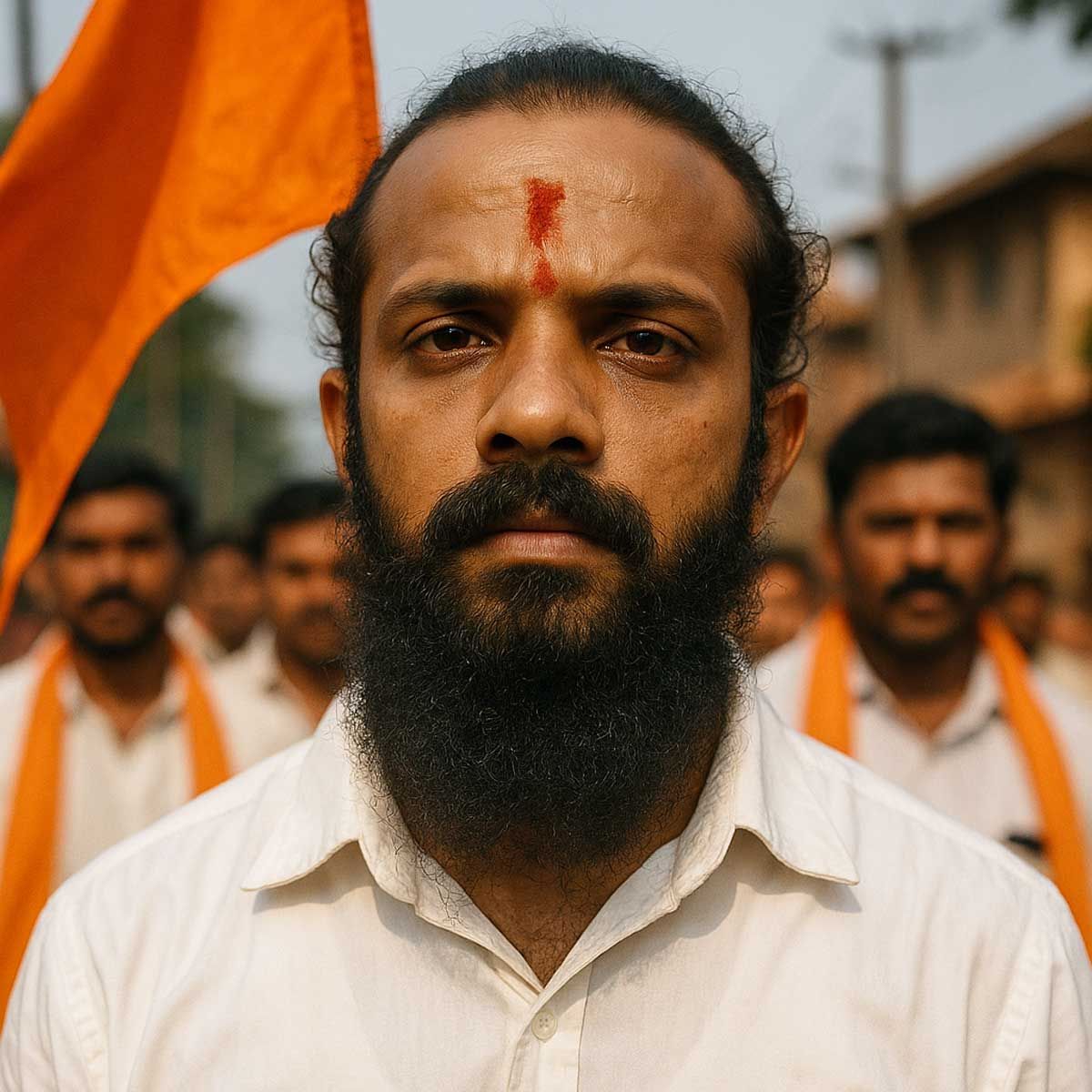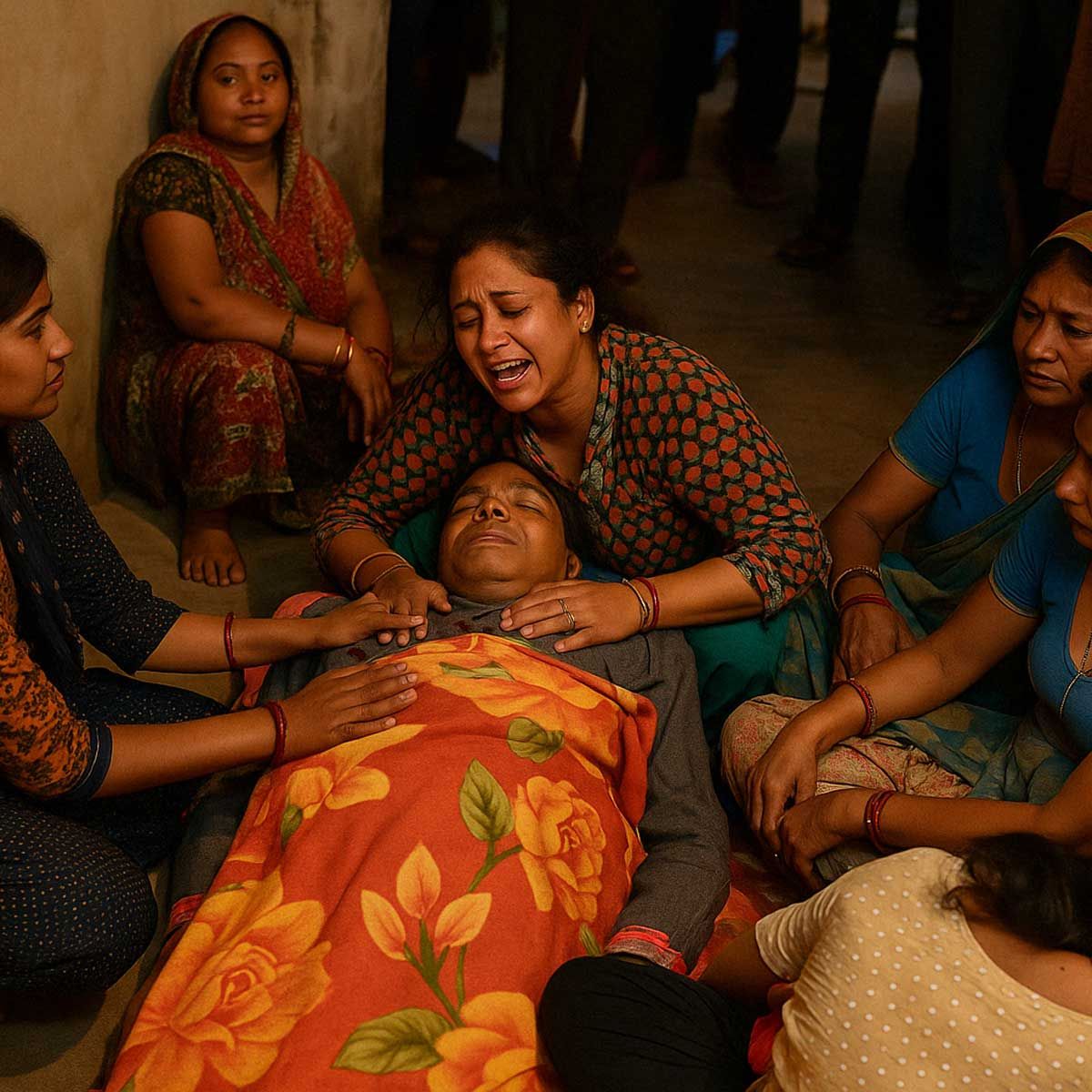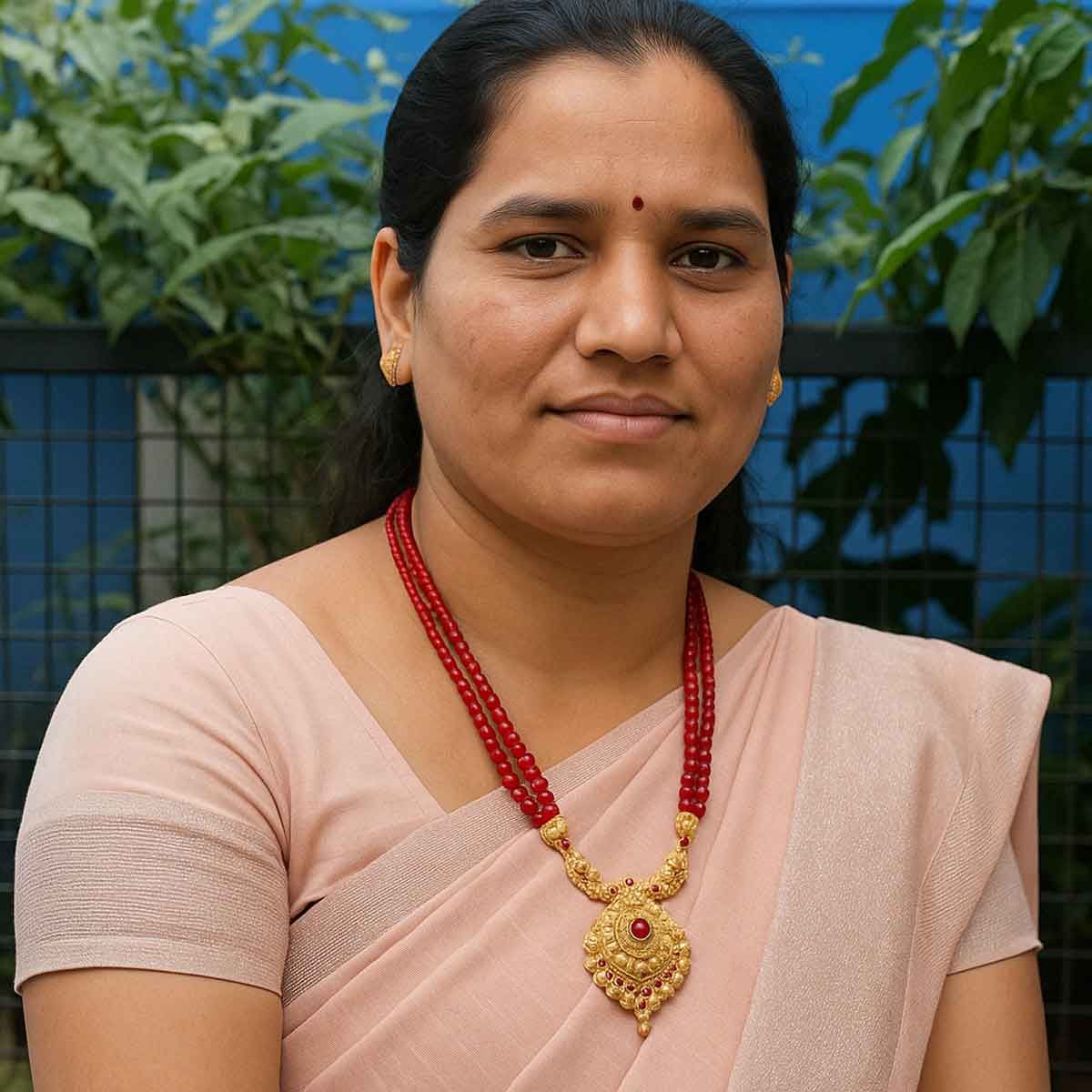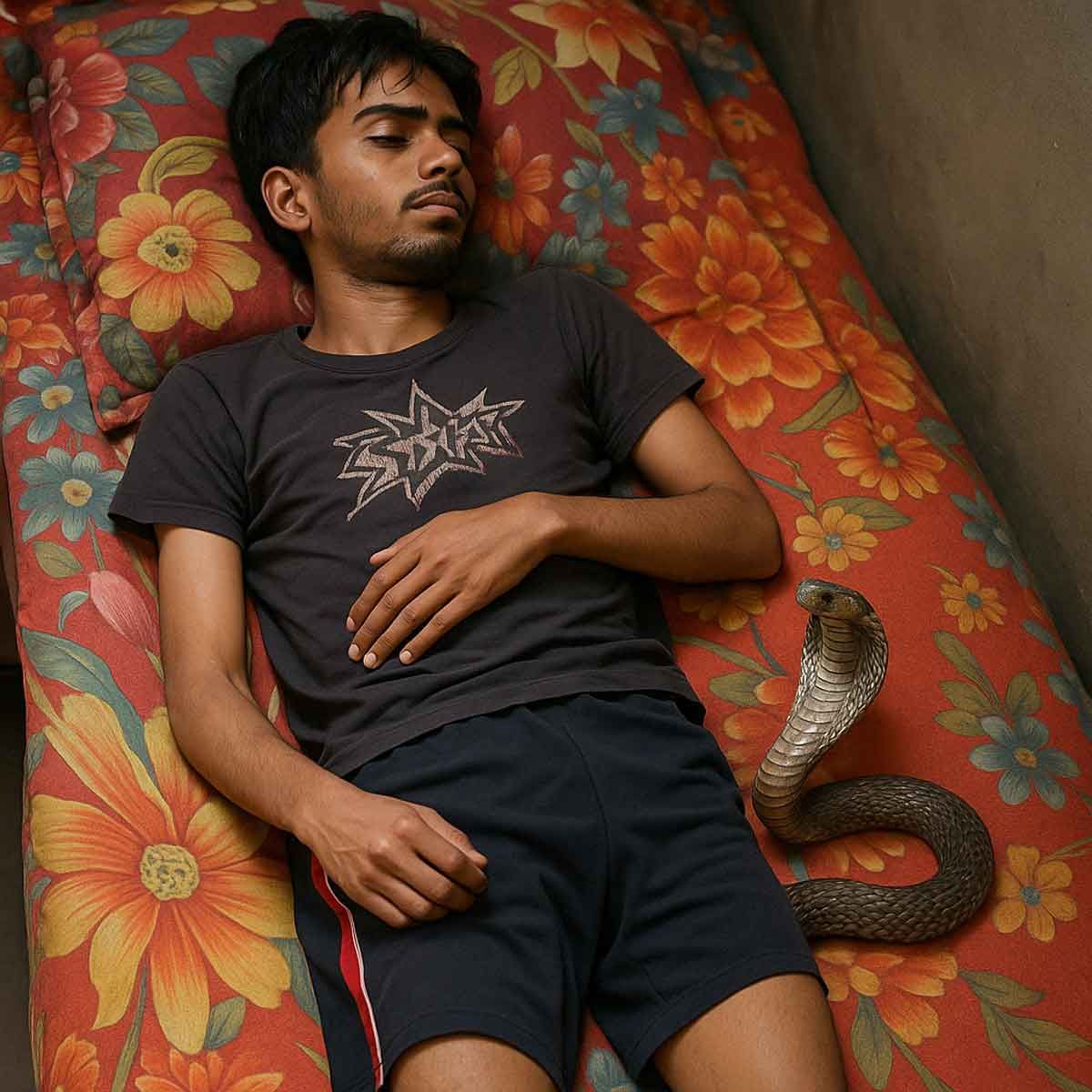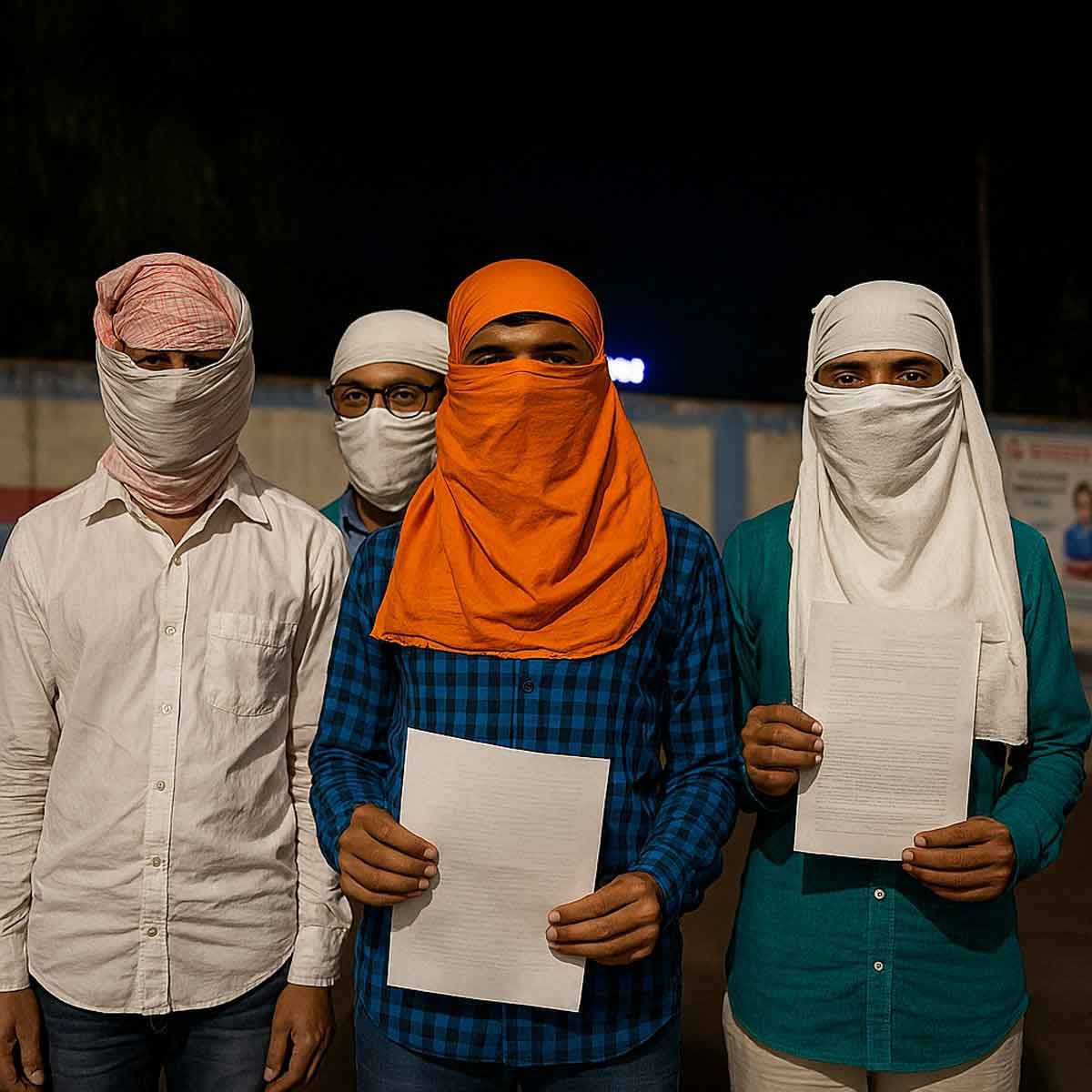More Coverage
Twitter Coverage
Satyaagrah
Written on
Satyaagrah
Written on
Satyaagrah
Written on
Satyaagrah
Written on
Satyaagrah
Written on
JOIN SATYAAGRAH SOCIAL MEDIA
"मदरसा": NCPCR's explosive report unveils shocking failures in madarsa education, demanding the immediate removal of non-Muslim children, slashing state funding, and enforcing the RTE Act to end the blatant denial of children's right to formal education

The National Commission for Protection of Child Rights (NCPCR) has recently put forward a comprehensive set of recommendations regarding the madarsa education system in India. The NCPCR's main concern is ensuring that all children, including those attending madarsas, receive a formal education in line with the provisions of the Right to Education (RTE) Act, 2009. Over the years, the NCPCR has repeatedly expressed its concerns about how madarsa students are being kept away from the formal education system, a practice that often results in “educational deprivation” and “violations of their rights.” This report aims to address these issues, proposing changes that could improve educational access and quality for children in madarsas.
The NCPCR argues that the exclusion of madarsa students from mainstream education systems places them at a significant disadvantage, making it difficult for them to integrate with the broader society or pursue careers outside their religious studies. This issue has long been a subject of debate, but the recommendations laid out in this report mark a concrete effort to bring change to the madarsa system. By urging madarsas to incorporate formal education and calling for the removal of non-Muslim students from these institutions, the NCPCR aims to streamline the focus on religious education while also promoting a balanced curriculum.
|
The Right to Education Act and madarsa exemptions
The Right to Education Act (RTE) was introduced in 2009 under Article 21A of the Indian Constitution, granting every child between the ages of 6 and 14 the right to free and compulsory education. However, an important amendment in 2012 exempted minority institutions, including madarsas, from the provisions of the RTE Act. This exemption was made to respect the religious education provided by these institutions, as Articles 29 and 30 of the Constitution safeguard the rights of minority communities to conserve their culture, language, and scripts.
The exemption was intended to protect the cultural and religious rights of these communities, ensuring that their unique identities were not threatened by mandatory formal education systems. However, this well-intentioned amendment came with unintended consequences. Children attending madarsas, because of this exemption, were left without access to the formal education system, leaving them vulnerable to “educational deprivation.” While the amendment was seen as a way to honor minority rights, it inadvertently denied students access to the formal schooling system that would have provided them with essential learning tools and a broader range of subjects.
Under the RTE Act, every student is entitled to a range of basic educational resources and facilities. These include “textbooks, libraries, mid-day meals, and an age-appropriate and child-friendly curriculum.” Yet, the 2012 amendment to the RTE Act meant that madarsa students were excluded from these critical provisions. As a result, these children, while receiving religious education, missed out on a more well-rounded educational experience that could have better prepared them for future opportunities.
The NCPCR has been conducting extensive research over the past nine years to analyze the effect of the 2012 exemptions granted to minority institutions, including madarsas, under the Right to Education Act. These exemptions were initially introduced to safeguard the cultural and religious education provided by madarsas. However, the commission's findings over nearly a decade suggest that these exemptions have led to significant shortcomings in the education and overall development of children attending these institutions. During this period, NCPCR held consultations with various stakeholders, including students, teachers, and community leaders, to get a holistic understanding of the situation.
In 2021, NCPCR published a comprehensive report based on these years of research. The findings revealed several concerning trends within the madarsa system. Many children attending madarsas, particularly those outside the purview of formal government oversight, were found to be deprived of not only formal education but also basic entitlements such as a “safe learning environment, proper infrastructure, and high-quality teachers.” The absence of these critical components has left a large number of madarsa students vulnerable and educationally disadvantaged, raising alarm about the long-term impact on their personal and academic development.
The report brought to light that a significant number of madarsas do not comply with essential safety standards and child protection policies, which are designed to ensure the well-being of students. In fact, the commission identified numerous instances of “child rights violations,” including “physical punishment, child labour, and inadequate living conditions.” These conditions, the report emphasized, severely hinder the well-being and future opportunities of the children enrolled in these institutions. The lack of a structured and safe environment has only added to the educational deprivation faced by these students.
In an interview with ANI, NCPCR chief Priyank Kanoongo discussed the findings of the commission's report. “The Commission has released its final report after studying this issue for 9 years. We have found that around 1.25 crore children are deprived of their basic education rights. They are being tutored in such a way that they would work according to the motives of certain people, this is wrong.” Kanoongo expressed his concerns about how these children are being influenced within the madarsa system, adding that “The people who have captured these Madrasas are those who used to say that they wanted to preach Islam across India during India-Pakistan partition.”
He further added, “There are Madrasa boards in 7-8 states and we have asked to shut the Madrasa boards because they failed to serve the purpose.” According to him, these boards have deviated from their intended role, leading to a compromised education system within madarsas. Kanoongo also highlighted the issue of funding, stating, “donations are being raised for Madrasas. This funding should be stopped.” Moreover, he suggested that “the Hindu children who are studying in these Madrasas must be enrolled in Schools.”
|
NCPCR’s findings
The NCPCR discovered that many states and Union Territories (UTs) have been hesitant to conduct the necessary mapping of madarsas, which is a critical requirement under the Right to Education (RTE) Act, 2009. This mapping is essential for ensuring that all children, regardless of where they are studying, receive formal and quality education in compliance with constitutional mandates. The commission emphasized that it is the state's duty to fulfill its constitutional responsibility to guarantee that children have access to education that meets the standards laid out by the Constitution and the RTE Act. If the state fails in this duty, it amounts to a “violation of children’s fundamental rights,” as it is the state's obligation to protect and provide formal education for all.
The commission further pointed out a glaring issue: since India’s independence and the adoption of its Constitution, many state governments have consistently failed to offer fundamental, formal education to all children. This negligence has resulted in children from certain communities being deprived of their basic educational rights. The commission did not shy away from pointing out that this failure could either be due to “the oversight of those responsible” or the deliberate intention of certain authorities to “appease specific sections of society for personal advantage.” This remark sheds light on a longstanding issue where political motives may have influenced educational policies, further affecting the rights of children.
Interestingly, the commission highlighted an additional statistic related to the representation of the Muslim community in education. According to the All India Survey on Higher Education (AISHE) report of 2019-20, despite Muslims holding the position of education ministers for 20 years, only 5.5% of students in educational institutions across the country come from the Muslim community.
The NCPCR noted significant differences in the educational representation of various communities. According to the commission, “Scheduled Caste (SC) students constitute 14.7%, and Scheduled Tribe (ST) students constitute 5.6% of the total enrolment, while 37% of students belong to Other Backward Classes (OBCs).” These figures highlight that marginalized communities like SCs, STs, and OBCs make up a large portion of the formal education system. However, despite opportunities for reservations and support, the representation of the Muslim population in higher education remains notably low.
The NCPCR attributed this disparity to the absence of a parallel education system for SC/ST communities, in contrast to the presence of madarsas for Muslim children. The report stated, “The SC/ST communities have not had the privilege of many education ministers from their own communities. Despite the opportunity of benefiting from reservation under different categories, the representation of the Muslim population in higher education remains low.” This shortfall, according to the commission, stems from the fact that children from Muslim communities are often drawn toward madarsas, while no such parallel system was established for SC/ST communities.
The commission emphasized the significance of education as a tool for empowerment, especially for marginalized communities. “Both Dr. B.R. Ambedkar and Mahatma Jyotirao Phule were strong advocates for education, particularly for marginalised communities, viewing it as a tool for social upliftment and empowerment.” Their advocacy inspired SC/ST communities to embrace formal education, recognizing its transformative power. The NCPCR remarked that this demonstrates how “leaders lead the way for society.” Communities that followed the teachings of their leaders understood the importance of formal education and actively pursued it, while “the representatives of the Muslim community did not carry forward the teachings of their religion and instead kept children away from their fundamental right to serve their own selfish purposes.”
The commission also referenced an important historical moment involving Maulana Abul Kalam Azad, the first education minister of independent India. In 1950, Azad visited Deoband and delivered a speech in which he praised the Darul Uloom for its academic significance and its role in shaping Islamic thought. However, the NCPCR noted that “this idea does not align with the promises made by the Constitution of India.” While Azad spoke about the importance of institutions like Darul Uloom, the commission pointed out that these religious schools did not meet the constitutional promise of formal education for all children.
The NCPCR’s report elaborated further on this historical connection, stating, “The first education minister of independent India, Maulana Abul Kalam Azad, was a founding member of the Anjuman-i-Ulama-i-Bangala in 1913, which would later become the Jamiat Ulema-e-Bangala branch of the Jamiat Ulema-e-Hind in 1921.” It highlighted Azad’s longstanding association with religious education, noting that when he visited Deoband in A.H. 1370 (1950-1951), he delivered a speech praising the Darul Uloom’s contributions to academia and Islamic thought. The commission, however, argued that this vision “doesn’t seem to match what was promised by the Constitution of India to the children.”
The report also referenced Article 45 as it appeared before the 86th Amendment in 2002. At the time, “Article 45 read: ‘The State shall endeavour to provide, within a period of ten years from the commencement of this Constitution, for free and compulsory education for all children until they complete the age of fourteen years.’”
|
Withdrawal of non-Muslim children from madarsas
The NCPCR has recommended that all non-Muslim children attending madarsas without explicit parental consent be immediately removed and enrolled in formal schools, as mandated by the Right to Education Act (RTE), 2009. According to the commission, non-Muslim children studying in these institutions without their parents' approval are being denied their fundamental rights.
The NCPCR’s recommendation emphasized that “Making a child profess a religion different from their birth religion shall amount to a violation of Section 75 of the Juvenile Justice Act, 2015 (JJ Act 2015).” This violation is not only an infringement of children's basic rights, but it also disregards the provisions of the JJ Act. The commission noted that this practice is sometimes carried out by institutions operating with State funding. “Any provision excluding children from the benefits of the right to education is against the spirit of the Constitutional principles with which the Constitution was adopted by the people for themselves.” This highlights the conflict between the functioning of certain institutions and the core principles enshrined in the Indian Constitution, especially regarding the protection of children’s rights to education and religious freedom.
Furthermore, the commission referred to key constitutional provisions. “Article 29(2) of the Constitution states that no citizen shall be denied admission into any educational institution maintained by the State or receiving State aid on grounds of religion, race, caste, language, or any of them.” This article ensures that access to educational institutions cannot be restricted based on factors like religion. Additionally, the NCPCR noted the importance of Article 28(3), which guarantees that “no person attending an educational institution recognised by the State or receiving aid from State funds shall be required to take part in any religious instruction or attend religious worship conducted in such institutions or premises unless the person, or in the case of a minor, their guardian, has given consent.” However, the commission pointed out that, in many instances, States and Union Territories have failed to provide evidence of parental consent for non-Muslim children attending madarsas that provide Islamic education. This lack of documented consent raises concerns about the violation of both children's and parents' rights in the context of education.
Given these findings, the NCPCR made a firm recommendation: “Therefore, it is recommended that all non-Muslim children be withdrawn from madarsa and enrolled in schools to receive fundamental education as per the RTE Act, 2009.”
|
Ensure formal education for all children
The NCPCR highlighted the necessity for states to ensure that all Muslim children attending madarsas are also enrolled in formal schools to receive education in line with the requirements of the Right to Education (RTE) Act, 2009. The commission emphasized the importance of adhering to the prescribed time and curriculum, ensuring that all children have access to both quality and formal education.
In its report, NCPCR reiterated, “The report reiterates that formal education for all children is a fundamental right, and hence every child is entitled to quality education as per the RTE Act, 2009. States are obligated to provide such schooling, where children up to class 5 attend school for 4 hours and children from classes 6 to 8 attend school for 6 hours. Failure to fulfil this duty is not only against the welfare of the children but also contradicts our constitutional ethos and principles.” The commission emphasized that not providing proper formal education violates the welfare of children and goes against the spirit of the Constitution.
During the process of creating the report, the NCPCR observed that “both religious and fundamental education can be provided concurrently but not within the same institution.” This statement underscores the need for a clear separation between religious education and formal education, ensuring that children receive comprehensive schooling that aligns with national educational standards.
In its recommendation, the commission stated, “Therefore, States should ensure that all children from the Muslim community attending madarsas, whether recognised or unrecognised, are enrolled in formal schools and receive education as per the prescribed time and curriculum under the RTE Act, 2009.” This recommendation calls for formal education to be made accessible to all Muslim children, ensuring they receive a full education according to national standards, regardless of the type of madarsa they attend.
|
Cease State funding for non-compliant madarsas
The NCPCR also urged states to cease funding for madarsas that fail to comply with the RTE Act’s requirements. The commission recommended that madarsa boards failing to meet educational standards should either be closed down or restructured to align with the Act’s provisions. The child rights body made it clear that madarsas not meeting the educational criteria should not continue to receive financial support from the state.
The NCPCR has firmly reiterated that state funds should not be utilized for any form of education outside the provisions of the Right to Education (RTE) Act, 2009, as doing so would directly violate children's rights. The commission stressed the need for a clear separation between state-funded formal education and religious education, which should be the responsibility of the respective communities. As per the NCPCR's recommendation, “State funds should not be spent on any instruction outside the RTE Act, 2009, as this would violate the rights of children. The responsibility of providing religious education lies with the concerned community, for which adequate provisions are made under the Constitution.”
The commission emphasized that the state should not engage in any form of appeasement when it comes to education. It must recognize its constitutional responsibility to allocate resources that ensure all children receive formal, quality education. “Without indulging in any form of appeasement, the State should recognise its responsibility as enshrined by the Constitution and the RTE Act, 2009, and allocate resources to ensure children receive formal, quality education,” the report stated. Failing to meet this responsibility, the commission argued, results in a violation of fundamental rights at an institutional level, which has long-term negative consequences on the welfare of the children.
Moreover, the report pointed out that merely creating a board or assigning a Unified District Information System for Education (UDISE) Code does not guarantee that madarsas are complying with the RTE Act's provisions. “Merely constituting a board or obtaining a UDISE Code does not indicate that madarsa are complying with the provisions of the RTE Act, 2009,” the NCPCR noted. It highlighted that such superficial measures do not ensure that the required educational standards are being met within these institutions.
The report also referred to Article 30(2) of the Constitution, which states that “the State shall not, in granting aid to educational institutions, discriminate against any institution based on minority status, whether by religion or language.” This ensures that minority institutions are not discriminated against in terms of receiving state aid, but it does not mean that such institutions can disregard the requirements of the RTE Act. The commission made it clear that “there is no discrimination against minority groups.” However, it also pointed out that any state funding provided under the guise of education, if it hinders the implementation of the RTE Act, is “unconstitutional.”
Consequently, the NCPCR made a strong recommendation that “State funding to madarsa and madarsa boards be stopped across all States/UTs and that madarsa boards be discontinued and closed down (in the case of Uttar Pradesh, subject to the judgment of the Hon’ble Supreme Court on SLP (Civil) No. 008541 of 2024).”
|
No State funding for religious instruction
The NCPCR has consistently emphasized in its recommendations that state funds should not be directed toward religious instruction, as this responsibility lies with the respective religious communities. The state's role, according to the commission, is to ensure the provision of formal education that aligns with constitutional and legal mandates. In their recommendations regarding madarsas, the NCPCR pointed out that “State funds should not be used for religious instruction, which is the responsibility of the respective community.” Instead, the state should concentrate on providing formal education that meets the standards set forth by the Right to Education (RTE) Act and other relevant laws.
The commission brought attention to a significant issue regarding a Memorandum of Understanding (MoU) signed between the National Institute of Open Schooling (NIOS) and Jamiat Ulema-e-Hind (JUH). The NCPCR criticized this agreement, highlighting how it played a part in keeping children out of formal education. The commission’s report stated, “The misuse of the MoU signed between NIOS and Jamiat Ulema-e-Hind (JUH) has also brought attention to the role of NIOS in the matter.” This agreement, the NCPCR noted, allowed children to remain outside the formal school system, which goes against the fundamental objective of providing free and compulsory education to all children as mandated by the Constitution.
The commission further explained that, despite knowing the state's obligation to provide formal elementary education, “NIOS signed an MoU with JUH while being aware that these children were not attending formal education in schools up to class VIII.” This decision by NIOS, according to the NCPCR, contributed to keeping a large number of children away from schools and, by extension, denied them their right to formal education as prescribed by the RTE Act. The agreement between NIOS and JUH allowed for a deviation from the formal education system, which led to these children not attending regular schools.
In light of this, the NCPCR strongly recommended that the Ministry of Education (MoE) investigate the role of NIOS in this matter. The commission stated, “Therefore, the Ministry of Education (MoE) may initiate action to examine the role of NIOS in this regard.”
 |
 Support Us
Support Us
Satyagraha was born from the heart of our land, with an undying aim to unveil the true essence of Bharat. It seeks to illuminate the hidden tales of our valiant freedom fighters and the rich chronicles that haven't yet sung their complete melody in the mainstream.
While platforms like NDTV and 'The Wire' effortlessly garner funds under the banner of safeguarding democracy, we at Satyagraha walk a different path. Our strength and resonance come from you. In this journey to weave a stronger Bharat, every little contribution amplifies our voice. Let's come together, contribute as you can, and champion the true spirit of our nation.
 |  |  |
| ICICI Bank of Satyaagrah | Razorpay Bank of Satyaagrah | PayPal Bank of Satyaagrah - For International Payments |
If all above doesn't work, then try the LINK below:
Please share the article on other platforms
DISCLAIMER: The author is solely responsible for the views expressed in this article. The author carries the responsibility for citing and/or licensing of images utilized within the text. The website also frequently uses non-commercial images for representational purposes only in line with the article. We are not responsible for the authenticity of such images. If some images have a copyright issue, we request the person/entity to contact us at satyaagrahindia@gmail.com and we will take the necessary actions to resolve the issue.
Related Articles
- 'Consistent brainwashing of children leading to unprecedented hate against the Hindu community', Arif exposes teachings of Madarsas in Bangladesh, says Jihad would happen when Imam Mahdi comes
- "उस्ताद-ए-रहमत": Maulvi Shahnawaz, head of a Madhubani madrasa, repeatedly raped a 16-year-old minor student, forced her to swear on Quran, gave electric shocks & threatened her life if she disclosed the abuse, surfacing when she became 7 months pregnant
- Video of two women performing namaz next to judges’ podium in Karnataka High Court gone viral on social media, FIR registered against Samvada channel for uploading a video of Court premises without permission
- Standing atop police commissioner’s car Maulana Wasim Mobalik instigated a Muslim mob through provocative speech culminating in attacks on the police station, temple, and hospital in Hubballi: Karnataka
- Hindu Spirituality Versus Monotheism - Defence of Hindu Society
- Devkinandan Thakur's statement is a slap in the face of the Islamist hoodlum from Hyderabad - “Many more Yogis and Modis standing in line…”
- All India Muslim Personal Law Board claims that Uniform Civil Code is unconstitutional, against the minorities, and is to divert attention from real issues and promote an agenda of hatred and discrimination
- Prashant Bhushan and Lawyers write to CJI over Dharma Sansad speech while whitewashing hate crimes committed against Hindus
- Congress-Left corporal commination, BJP’s moment of convenience: Mainstreaming the ‘Nationalist Muslim’ with the reinstallation of Hindutva
- Arabic Teacher Shoeb Akhtar of Darul-Uloom was sodomizing a 10-year-old boy for ten days inside madarsa, arrested: Victim’s family had enrolled him after returning from South Africa two months back
- Is "thook jihad" a thing: The significance of spitting in Islam and how spitting can ‘ward off Satan’
- Standing Up to Scrutinize Islam - Freedom of Expression
- Imam Usman apparently discovered his wife Hina is pregnant with a girl based on his ‘tantra’ education, throws her off the roof of the mosque, and tried to blame murder on ‘7-headed Kali’: Saharanpur
- ‘Casteless Hindu’ is Not a Paradox. It is The keystone of ‘Ghar Wapsi’ and Hindutva
- Girl students wear saffron shawls, chant Jai Shri Ram to protest against hijab in Karnataka: What Ambedkar meant about Women in Islamic Veil by saying, ‘One of the most hideous sights one can witness in India’















